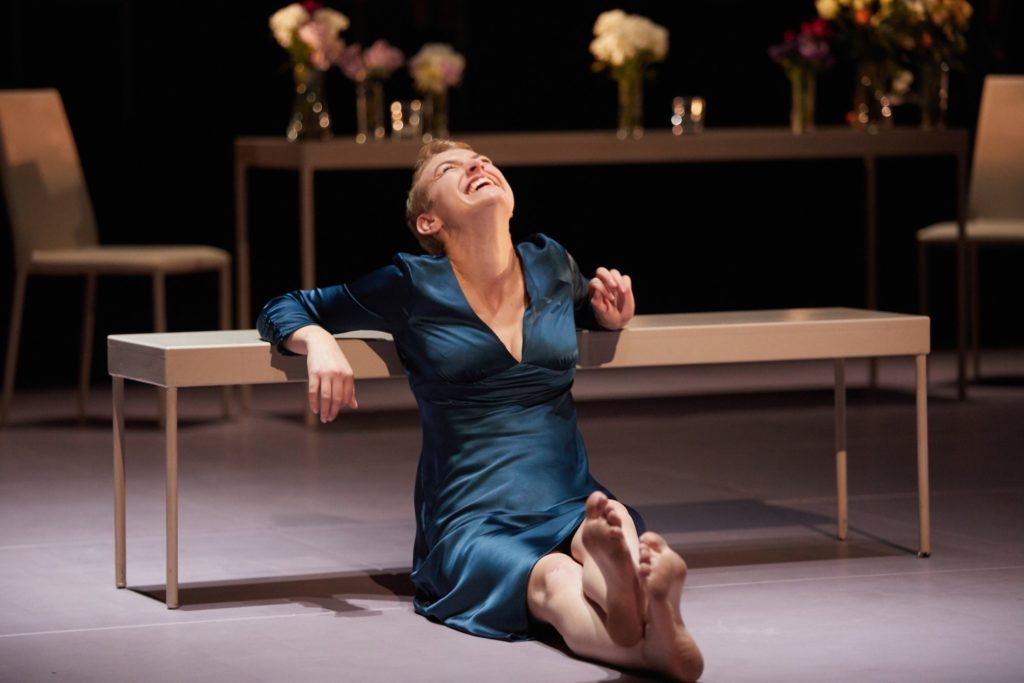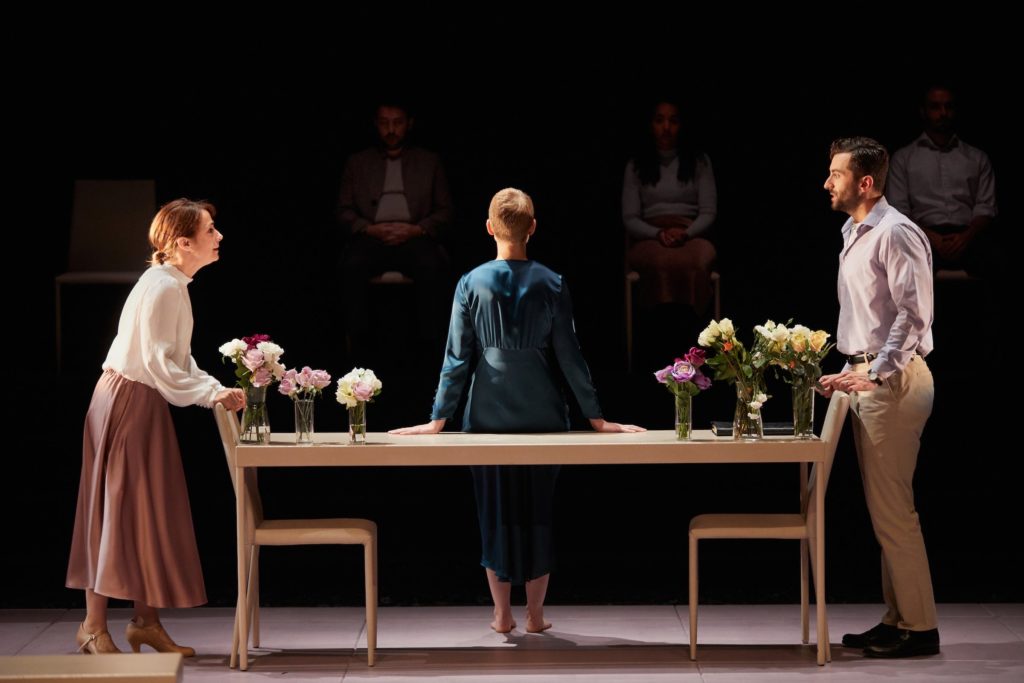
I couldn’t take it any longer and I left at the interval. I know I should have stayed but I couldn’t. Hedda Gabler was awful. The reviews are all ecstatic, but I only saw incongruous old-fashioned theatre. There is nothing of Ibsen, there is nothing of bourgeois anxiety, and nothing of women’s suppressed individuality in Chelsea Walker’s production.
Hedda Gabler, played by Heledd Gwynn, is here turned into a hysterical woman. She wears a loose evening gown in the middle of the day, bare foot, with a pixie style hair-do, shouting and fidgeting. Ibsen’s Hedda is not mad.
Hedda Gabler scandalised Norwegian and European society not because she was outrageous, but because everybody could identify with her. What makes it a classic is not the reverence we have of authors from a bygone era, but Ibsen’s shattering of our illusions of success and fulfilment, to reveal how those very illusions crush our thirst for meaning, freedom, and beauty.
Hedda Gabler is not a feminist or a frustrated woman, her profound rejection of social trappings echoes with all of us, across genders, race, and even class, because we all live within the bounds of social norms and expectations, which stifle us. Ibsen pointed an unforgiving light on the troubles of the bourgeoisie at the end of the nineteenth century, when the bourgeois class was at once at its height and already experiencing decadence. One could be forgiven for thinking that this work sits awkwardly today, at a time of a severely diminished middle class, which cannot even aspire to be called ‘bourgeois’. It lacks the sophistication, the imagination, and the audacity of the nineteenth century bourgeoisie. Yet, today’s struggling middle class, like yesterday’s bourgeoisie, battles with economic forces it has unleashed and cannot control. We have been reduced to cogs in the machine, yet the ideology of the machine is to make us believe that we are all individuals and can shape our destiny, if we only wanted it. Failure is our fault. We don’t want it badly enough. So tripped into guilt, we feel but loss and futility.
The Tesmans, Hedda and her husband George, are not doing badly. George, played humorously by Marc Antolin, is in line for a professorship and, unlike now when professors live in foodstamps, that would have meant financial security and social respectability. We don’t get a sense of that, thanks to a Ikea-inspired stage design, which consists of a white and minimal table, a bench, a chair, and a piano. The comments on Hedda’s liking for luxury fall flat and make one wonder whether anyone in the production read the script.

Hedda doesn’t like expensive furniture and clothes for its own sake, but because they signify beauty as much as acceptability. Hedda feels trapped by social conventions, but she cannot resist them. In this production, Hedda has pixie hair and walks bare foot in a loose silk gown, almost a nightie.Hedda Gabler is not a free woman, she is not a sixties’ swinging London carefree girl, a hippie or a sexy femme fatale. She is in prison. It is the prison of respectability, of appearance, of sense. She tells us over and over again that she is afraid of scandal, she is envious of Thea Elvsted, who leaves her husband in ‘broad daylight’ and can express herself by writing with Eilert Loevborg.
Turned into a 1960s rebel, Hedda’s firing a pistol and burning a manuscript are but whimsical pranks. There is no explosive fire in Hedda Gabler.
